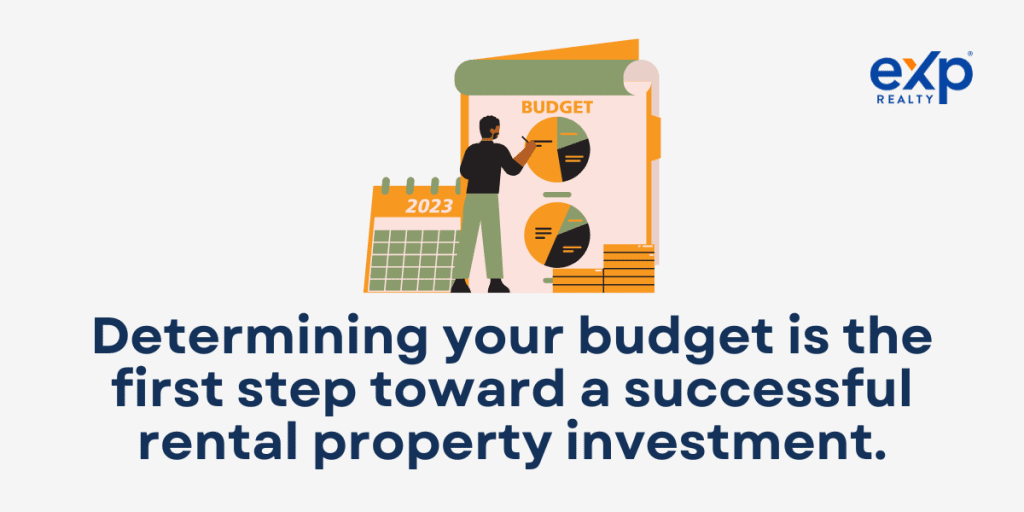Investing in a rental property can be a lucrative venture, offering a steady stream of rental income and a potential appreciation in property value. However, it involves careful planning and decision-making to ensure a profitable return on investment.
If you’re considering purchasing a rental property, read on to learn the factors to consider to make a sound investment.
Location, Location, Location

Yes, real estate investing is all about location. The neighborhood of your rental property is essential to attracting tenants and dictates your potential return on investment. Whether you’re seeking a single-family home in San Francisco or a multi-family in Charleston, your real estate investments’ profitability heavily depends on their locations.
Before purchasing, research the local real estate market. Understand the market properties’ prices, vacancy rates, and rental prices to find insights into different cities’ real estate market dynamics and income potential.
Consider changes in the job market or the broader economy. For instance, a surge in remote work might affect the appeal of properties in bustling city centers compared to those in quieter suburban areas.
Also, be aware of potential changes in tax policies or zoning laws that could affect property values. To stay on top of these trends, consider subscribing to real estate newsletters, attending investor meetups, or networking with local real estate professionals.
Additionally, a property in a neighborhood near schools, transportation, shopping centers, hospitals, and recreational facilities is likely to attract more tenants. You should consider the area’s demographic and population growth trends, as these factors can affect the demand for rentals.
A knowledgeable real estate agent can be invaluable in helping you understand the local market dynamics. They can provide insights into the rental market, including the average monthly rent, homes for rent, and the demand for housing. A professional real estate agent can help you find property for sale that fits your investment criteria, whether it’s a distressed property offering a reasonable purchase property price or a premium property in a sought-after location.
Remember, a successful investor doesn’t just purchase a property; they invest in a location. The right location can help ensure steady rental income, low vacancy rates, and long-term capital appreciation. Whether you’re a first-time investor or an experienced real estate professional, the importance of location in your investment strategy cannot be overstated.
Property Type and Market Demand
Another significant factor to consider when buying a rental property is the type of property you’re investing in. From single-family homes for sale and multi-family properties to apartments, condos, and even commercial properties, each offers unique advantages and drawbacks.
Single-family homes, for example, attract long-term tenants who value privacy and space. In contrast, apartments or condos may appeal more to young professionals or students seeking affordable and convenient city living. Your property type should align with your investment goals and risk tolerance.
Analyzing the current market demand for rental properties can guide your decision. For instance, investing in an apartment unit could be a promising opportunity in a market with a high demand for apartments for rent.
Also, consider the target demographic and their preferences. Are you targeting families, young professionals, students, or retirees? Understanding your potential tenants’ needs and preferences can help you make a more informed investment decision.
Lastly, evaluate the potential rental income and return on investment. While a single-family home might fetch higher monthly rent, a multi-family property for sale could provide a more stable income due to multiple rental units. A rental property calculator can help assess the profitability of all types of properties and inform your decision.
Consider also the cost of potential vacancies, particularly in areas or property types where tenant turnover is high. While it may be tempting to focus only on potential income, keeping a realistic perspective on the costs can help you avoid surprises down the line. Implement a strategic marketing plan to attract and retain quality tenants. This may include competitive pricing, keeping the property well-maintained, and offering desirable amenities.
Financial Considerations

Determining your budget is the first step toward a successful rental property investment. Are you looking for a property for sale with a high purchase price and potential for significant capital appreciation, or are you more comfortable with a distressed property that may be less expensive but require major repairs? Whatever your budget range, there are plenty of opportunities to find a property for sale that fits within it.
Once you’ve established a budget, explore your financing options. Potential options include traditional mortgage loans, hard money loans, or even a partnership with other real estate investors. A savvy real estate investor also accounts for closing costs, property taxes, and other operating expenses.
Next, calculate the potential rental income and expenses, such as property management representation (a good property manager is key), repairs, and insurance. Remember to factor in potential vacancy rates. These calculations will help you estimate your operational income and assess the property’s cash-on-cash return.
Aside from the upfront costs, you should also account for long-term expenses such as potential property improvements, routine maintenance, and periodic market downturns. Building a financial buffer can help you navigate these unexpected expenses and mitigate risks. Diversifying your investment portfolio beyond real estate can also provide an added layer of financial security.
The property’s appreciation potential is another important consideration. While rental income can provide regular monthly income, property appreciation can significantly boost your return on investment in the long term.
Finally, consider the tax implications. Rental income is taxable, but landlords can often deduct property expenses such as repairs, property management, and interest on a mortgage. Consult a tax professional or real estate experts to understand the potential taxes of your rental property.
Remember, buying a rental property is a significant financial decision. Thorough research, careful planning, and sound financial management are essential for a profitable investment property.
Condition and Maintenance
The condition of a property is essential to its viability as a rental investment. A thorough inspection by a professional can provide an in-depth analysis of the property’s condition and help you avoid potential problems in the future.
The age and condition of the roof, HVAC system, plumbing, and electrical systems need to be assessed. If they are in bad condition, you may need to make significant repairs. You should also estimate the ongoing maintenance costs. Depending on the property’s condition and type, these costs may include landscaping, snow removal, cleaning, minor repairs, and more.
Remember, neglecting maintenance can lead to costly repairs and potential issues with tenants. Moreover, consider the property’s overall durability and long-term sustainability. A well-built, well-maintained investment property can withstand the test of time and provide a stable income source with less unexpected expense. While investment property in poor condition may provide a lower purchase price but require more work and investment in the long run.
The property’s design and layout should inform your real estate search. Tenants may be more attracted to properties with open floor plans, lots of natural light, and modern amenities. If a property has unique features like energy-efficient appliances or smart home technology, it could command higher rent and attract more prospective tenants.
Rental Market Regulations
Successful real estate investing requires an understanding of local rental market regulations. These rules govern everything from the amount you can charge for rent, how and when you can increase rent, what you can deduct from a security deposit, to how eviction processes work.
It’s also essential to understand your rights and responsibilities as a landlord. This includes maintaining the property to a habitable standard, respecting tenants’ privacy, and responding to repair requests promptly. Similarly, knowing what you can expect from your tenants—such as paying rent on time and keeping the property in good condition—can help prevent misunderstandings and disputes.
Familiarizing yourself with the eviction process is essential too. While no landlord wants to resort to eviction, it’s necessary to understand the process should it become necessary. Consulting with a lawyer or a real estate professional experienced in the local rental market can be immensely helpful. They can help ensure you fully understand local regulations and your rights and obligations.
In addition, it can be beneficial to join local landlord or real estate investment associations. These organizations can provide valuable resources, advice, and opportunities to network with other property owners who can share their experiences and insights. They may also offer educational programs or seminars on issues like fair housing laws or energy efficiency regulations.
Property Management Options
So how do you manage your rental property? Well, the primary options are self-management or hiring a property management company. Each has its benefits and drawbacks. 
Self-management gives you complete control over your property and the potential to maximize your rental income by saving on property management fees. However, it can be time-consuming and stressful. You’ll be responsible for everything from finding tenants and collecting rent, dealing with repairs, and knowing landlord-tenant laws.
Hiring a property management company can relieve you of these burdens. The property manager can handle all aspects of managing your property, from advertising vacant units and screening potential tenants to maintaining the property and dealing with tenant issues. However, this service comes at a cost, typically a percentage of the monthly rent, which will reduce your net rental income.
If you opt for a property management company, you need to do your research. Ask for recommendations, read reviews, and interview potential companies to ensure they’re a good fit for your property and your expectations.
Remember to factor in the costs associated with property management, whether you do it yourself or hire a company. These costs should be included in your budget and factored into your return on investment calculation.
Managing a property requires financial investment, time, and effort. If you decide to manage the property yourself, be prepared to devote time to tasks such as conducting regular property inspections, addressing tenant concerns promptly, and staying updated with changing rental regulations.
Consider setting aside a budget for occasional professional services like pest control, HVAC maintenance, or plumbing services to ensure your property stays in good condition and continues to attract tenants.
Future Growth and Market Trends
Investing in a rental property is not just about the property’s current value or the current state of the local real estate market.
Future growth and market trends also significantly affect your property’s potential appreciation and rental income growth. Analyzing the local economy and job market can provide insights into the area’s future prospects. A strong local economy with a growing job market can indicate high demand for rental properties, increasing rental prices and property values.
Consider future development plans and infrastructure projects in the area. New schools, transportation hubs, shopping centers, and other amenities can increase a neighborhood’s attractiveness and property values.
Staying updated on market trends and changes is also essential. Changes in interest rates, housing laws, and even societal trends can impact the real estate market. An active real estate investor monitors these factors to anticipate market shifts and adapt their investment strategy accordingly.
By considering potential growth and market trends, you can make informed investment decisions and select a property with a strong potential for appreciation and increased rental income.
Risk Assessment and Exit Strategy
Investing in rental property has its risks. Property damage, tenant disputes, vacancies, sudden market downturns, and unexpected costs are some potential challenges you may encounter. Assess these risks and evaluate your risk tolerance and ability to handle potential issues before becoming a rental property owner.
Moreover, you should develop an exit strategy for unexpected circumstances. Planning when to get out of your investment is important. Options could include:
- Selling the property
- Refinancing to pull out equity
- Converting the property to a different use, such as a primary residence or a commercial property.
Having an exit strategy provides a safety net and helps you identify the conditions under which moving on from your investment would be beneficial.
Furthermore, a well-thought-out exit strategy can make your investment more appealing to potential partners or lenders, as it demonstrates your foresight and risk management skills.
It’s advisable to periodically reassess your exit strategy as market conditions and personal circumstances change. For instance, you might initially plan to hold a property for a long-term appreciation but later decide to sell it to capitalize on a hot real estate market. Being flexible and adaptive is essential to navigate the ever-changing world of real estate investing.
Key Takeaways
Investing in rental property can be rewarding but requires careful consideration and thorough research. It’s not just about choosing a property; it’s about evaluating its potential for returns, assessing risks, understanding the local market, considering financial and tax implications, and having a solid management plan.
When done correctly, buying a rental property can provide a steady stream of passive income and the potential for appreciation, making it a worthwhile addition to your investment portfolio.
If you still need to decide whether to invest in a rental property, visit eXp Realty to explore available properties for sale. Or connect with a local eXp agent to guide you through the process. We can help you navigate your real estate investment journey to find the perfect, income-boosting rental property.
Frequently Asked Questions: Rental Property
There are so many things to consider in rental property investments. Below, we answer some of the most commonly asked questions of rental real estate investors.
What is a good yield for a rental property?
The annual rental income should be a percentage of the property’s value. An attractive rental yield varies depending on the location and type of property, but typically, a yield of 5-8% is considered good. However, you must consider other factors, such as property appreciation and operating expenses, to evaluate your return on investment.
What is a good rate of return on a rental property?
A good rate of return, also known as the capitalization rate, depends on the real estate market and property type. Generally, a cap rate between 8-12% is often considered good. However, these numbers can vary, and it’s essential to calculate based on your specific costs and rental operating income.
What’s a good profit on an income rental property?
Profitability depends on factors like location, property type, rental rates, and operating costs. However, most real estate investors aim for a profit margin of about 10% after accounting for all expenses, including mortgage payments, maintenance, insurance, property taxes, and vacancies.
What are the best websites for finding rental properties?
Several online platforms provide listings for houses for rent, such as Realtor.com, Zillow, Trulia, Apartments.com, and eXp Realty’s website. These sites provide comprehensive information on available properties, including photos, price, location, and detailed descriptions.
Why buy a rental property?
Rental properties for sale can offer several benefits. They can provide a steady stream of passive income, potential tax benefits, and a means to diversify your investment portfolio. Additionally, real estate often appreciates over time, increasing wealth in the long run.
Remember, like all investments, buying rental properties involves risks, so it’s crucial to do your homework before purchasing.





